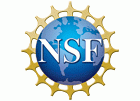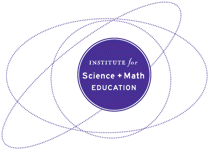Why should students investigate contemporary science topics—and not just "settled" science?

Why It Matters To You
- Teachers should at least at times engage students in investigations of contemporary science and engineering topics.
- District staff and PD providers should communicate with teachers about instructional materials, community resources, and projects focused on contemporary STEM topics.
- School Leaders should support the teaching of contemporary investigations by forming relevant partnerships and locating resources.
What is the Issue?
Students are frequently asked to investigate "settled" science topics and to simply confirm what is already known, but they can learn "basic science" through contemporary topics. The integration of contemporary scientific problems into K-12 instruction can give learners exciting ways to learn and apply disciplinary core ideas of science, engage purposefully in the science and engineering practices, and even make meaningful contributions to science, engineering and/ or their communities through their investigations.
Authors:
KATIE VAN HORNE AND PHILIP BELL
Reflection Questions
- What current topics in science interest you? How do they relate to learning goals in NGSS?
- To what degree are students conducting authentic science investigations in your classroom? What can be done to help students see scientific knowledge developed and applied to real world problems?
- Contemporary science is in the news, interesting, and often applicable to students' lives. How can you incorporate timely, interesting, and relevant topics in your teaching? How can you highlight connections, assign readings, or teach through contemporary investigations?
Things to Consider
- Contemporary science relies on the core science and engineering practices of the NRC Framework—and others—to investigate the world. Students who participate in such scientific efforts iteratively and collaboratively engage in STEM practices that help them understand, communicate, and contribute to scientific research— and to see it as a cumulative, social, and creative enterprise.
- Scientific fields are quickly expanding, but the topics of science instruction are typically fixed. Bringing contemporary science topics into the classroom can help students recognize the broad utility of scientific practices, how disciplinary core ideas and cross-cutting concepts relate to current research, the many roles for science in society, and the active and dynamic aspects of scientific work.
- Practice-focused instruction on contemporary topics (e.g., projectbased instruction) helps students appreciate and contribute to the edge of scientific understanding. It helps them make a personal connection, identify with science, and appreciate that practices are fluid and complex—and don't follow rigid, prescribed steps.
- Contemporary science is increasingly interdisciplinary; scientists from disparate fields collaborate to work on complex problems. In contrast, different school subjects are often presented in isolation. Engaging students in contemporary problems rooted in real scientific questions allows them to experience the extensive connections between fields—in keeping with the spirit of NGSS.
Attending to Equity
- All students are entitled to learn about contemporary science and engage in authentic investigations. By involving all learners in making contributions to contemporary scientific fields, their knowledge about and influence on science is expanded.
- Students can use contemporary science issues to address their own interests or needs in their communities, making science more engaging and meaningful than "confirmatory lab" instruction.
Recommended Actions You Can Take
- Online videos and science news feeds are a great resource for kicking off contemporary science in the classroom (e.g., social network analysis of disease transmission). Start small and expand over time.
- Get ideas about contemporary topics for your classroom by talking with a local scientist or engineer, exploring science news articles and web sites, and asking students about issues in their communities.
- Consider involving students in a citizen science project.
ALSO SEE STEM TEACHING TOOLS
STEM Teaching Tools content copyright 2014-22 UW Institute for Science + Math Education. All rights reserved.
This site is primarily funded by the National Science Foundation (NSF) through Award #1920249 (previously through Awards #1238253 and #1854059). Opinions expressed are not those of any funding agency.
Work is licensed under a Creative Commons Attribution-ShareAlike 4.0 Unported License. Others may adapt with attribution. Funded by the National Science Foundation (NSF). Opinions expressed are not those of any funding agency.


 Email Feedback
Email Feedback



